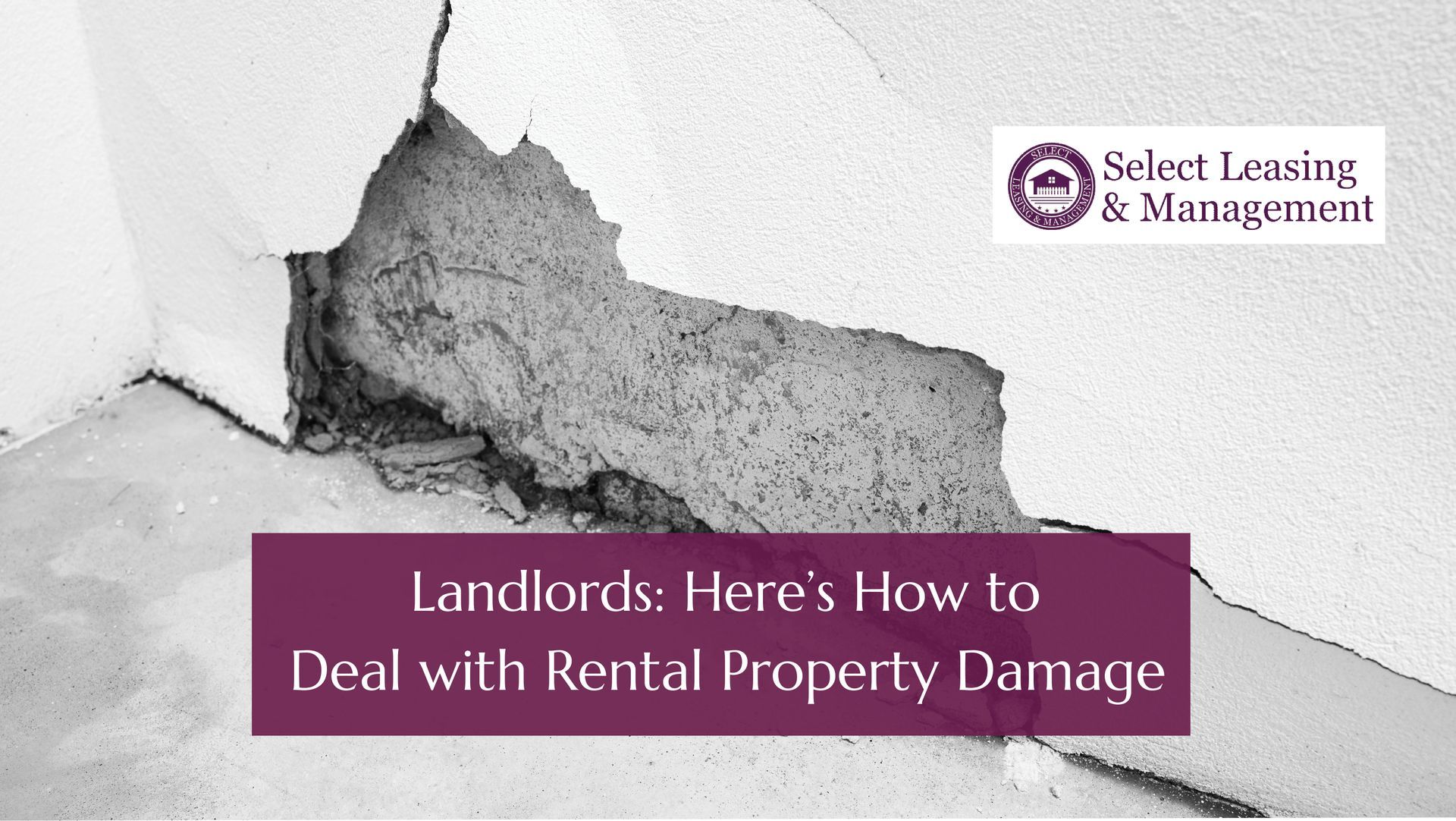Rental property emergencies can take many forms, from nuisances like burst water pipes to life-threatening fires or natural disasters. Regardless of the severity of the emergency, landlords must be prepared to respond quickly and decisively to ensure tenant safety and to minimize property damage.
Emergency preparedness for landlords who self-manage their rentals can be a daunting task. Entrusting a property management company instead is the perfect solution for landlords who are overwhelmed by the prospect. These professionals have the expertise to anticipate a variety of scenarios, plan and organize resources, and know what to do if and when a crisis arises. Here’s how they do it.
What Counts as an Emergency?
Some emergencies take more preparation than others. Fires, floods, tornados, and anything else that puts lives and property in danger are obviously worthy of a full-scale emergency response.
Many other situations are not quite so severe, but signal that a tenant should get in touch with their landlord or property managers right away. Having the furnace go out on a cold night, seeing sparks come out of an electrical outlet, or noticing water saturating the ceiling all call for immediate action.
Landlords must also be ready to respond to less serious situations that are still of obvious concern to the tenant. For example, a tenant might place an urgent call to the landlord in the middle of the night if their key breaks off in the lock and they can’t enter their apartment.
The point is that there doesn’t have to be a major catastrophe to consider something an emergency. Tenants should not be reluctant to call when something concerning happens. Part of property management is being available any time of the day or night and being ready for anything—large or small.
Anticipating and Preparing for Rental Property Emergencies
Emergencies are bound to happen, and property management companies take the burden off of owners by being proactive when it comes to being prepared. Even if rentals never experience anything serious, the following practices are a standard part of professional property management.
Preventive Maintenance
Keeping up with maintenance and repairs is essential to safeguarding the landlord’s investment property and fulfilling the duty of care owed to tenants.
Regular maintenance and inspections will ensure compliance with safety standards and regulations. This will keep everyone safe and will make it less likely that certain types of emergencies will catch the property manager off guard. For example, staff may notice if a banister is loose, if the HVAC system is making weird noises, or if an appliance is due for replacement.
Preventive maintenance may also protect building owners from
premises liability claims if someone gets hurt on the property. Service records will show evidence of regular upkeep.
Equipping the Property
Educating Tenants
Part of a property management company’s job is to inform tenants of what to do in an emergency.
They should point out or provide important things like:
- The location of the nearest safety equipment such as the fire extinguisher
- How to locate utility shut-off valves
- Floor plans within each unit or in a prominent spot in common areas, so an emergency exit plan is clear
- The emergency contact number or app for the property management company
A crucial part of any emergency response is knowing how to reach property management staff. Management companies like
Select Properties use an online portal for maintenance requests, rent payments, and more. Tenants should be instructed on whether to use the app or contact the management company directly in an emergency. All relevant contact information should be furnished to tenants so it is handy when the time comes.
That said, tenants should always be instructed to call 911 first if anyone is hurt or in danger. Serious events (explosions, gas leaks, break-ins), should be reported to authorities first before notifying the landlord.
Having a Plan
Property management companies create protocols and procedures for various emergency scenarios. Ideally, these are documented in writing, and whichever staff member receives the notification has been trained on what to do.
In the case of a straightforward emergency like a broken furnace or burst pipe, the course of action may simply be calling an HVAC repair service or a plumber. A big advantage of property management companies is that they have a list of reliable contractors and resources.
Experienced management companies also have documented disaster plans for more serious situations like fires or weather-related events.
These should include:
- A comprehensive tenant list with contacts
- Emergency contacts for all tenants
- Evacuation routes
- Designated gathering points
Property managers should provide tenants with information about what to do in case of a serious emergency. For example, instructing people to go to the basement during a tornado warning, or to use stairs instead of elevators if there is a fire.
The management company staff should periodically review and practice emergency protocols and tenants should be reminded of them on a regular basis too.
Immediate Availability is Crucial During a Crisis
The number one rule of emergency preparedness for landlords is being available 24/7. This is often the biggest reason
why landlords find a property management company. Time is of the essence when there is a crisis, and tenants can’t wait until morning or the next business day for someone to get a voicemail or see their text.
Once on-site during an emergency, the property manager will act as the liaison between the tenants and first responders, utility workers, or repairmen. They will also keep the owner informed about what is going on. Property management personnel know the property and its layout and can direct responders to access points and utility shut-offs. They will be able to disable security systems and unlock doors and gates as needed. They also know the tenants and will ensure that everyone is safe and accounted for and can provide tenant information to authorities as needed. Their role is very important as the tenants’ main source of information, updates, and instructions.
Recovery and Restoration Keeps Your Investment Up and Running
Property management companies are used to planning and budgeting for repairs and can coordinate repairs and restoration
if the property is damaged during an emergency. They will act quickly, tackling tasks such as:
- Securing and boarding up broken windows, changing locks, cleaning or replacing flooring, patching and painting walls, or rebuilding parts of the building that were destroyed.
- Filing insurance claims, providing documentation of the damage and quotes for repair work.
- Dealing with premises liability claims if anyone was hurt.
- Helping tenants find temporary housing if their unit is not livable.
- Extending the
grace period for rent payments if needed.
Cleaning up and restoration after an emergency is crucial to getting the investment property back to normal. Property management companies can take care of the details, making them an invaluable partner for an owner who does not have the time or expertise to do it themself.
Hiring a Property Manager to Handle Emergency Preparedness for Landlords
Hopefully, your tenants will never experience a serious emergency in their rental units. But if they do, they deserve to have someone there who knows how to take charge, keep calm, and contain the situation. Landlords can’t always be there for their tenants when something goes wrong, but that is a property manager’s job.
Property management companies have the expertise to handle crises quickly and decisively. In the St. Louis region,
Select Leasing & Management provides world-class residential property management services. We safeguard your tenants and your property, not just with exceptional day-to-day operations but with our responsiveness to emergencies big or small.
Contact us today to learn how we can help.












